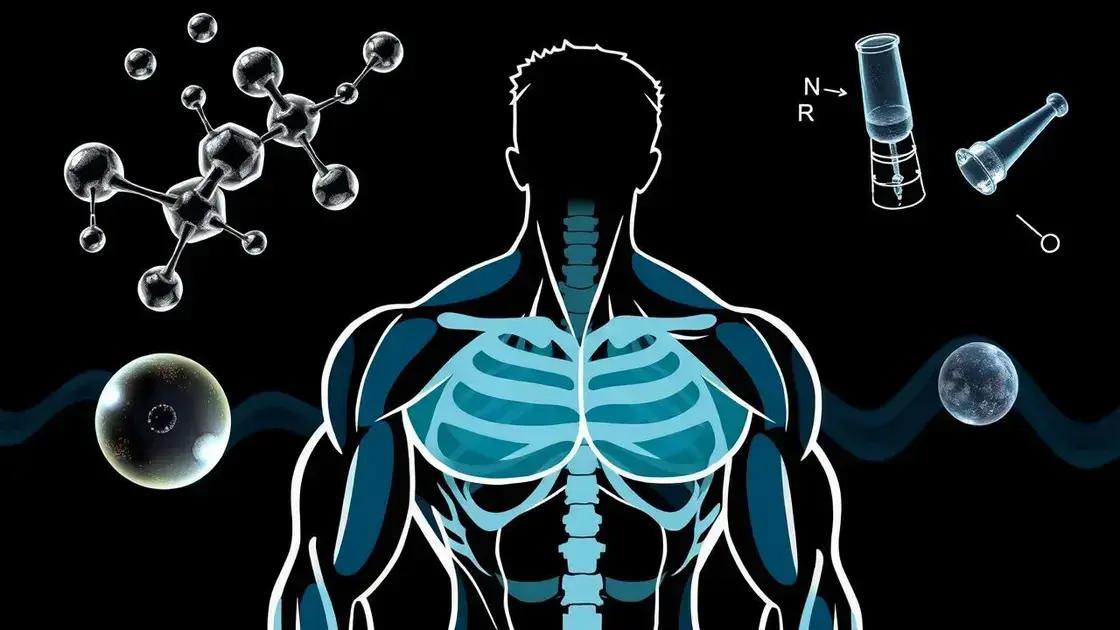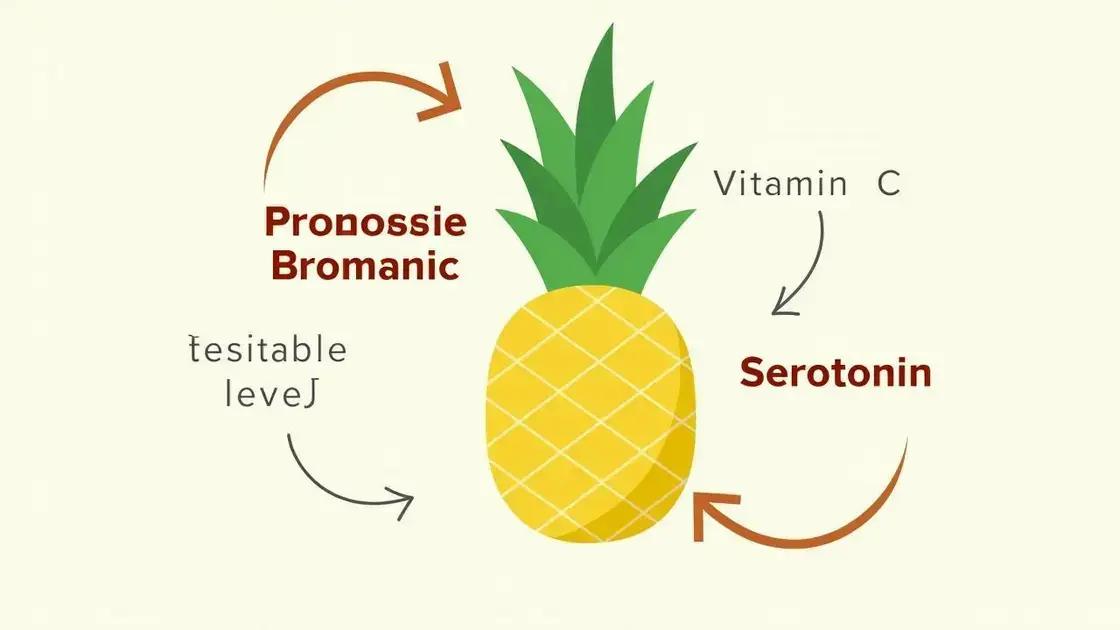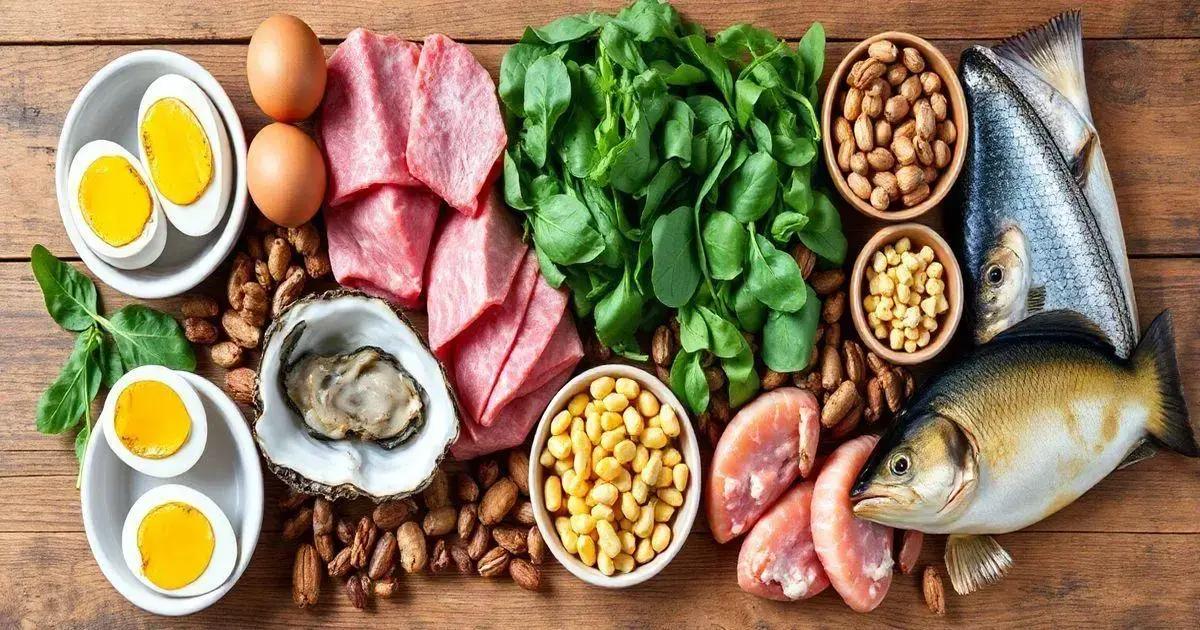Pineapple can positively impact testosterone levels due to its rich content of Vitamin C, manganese, and bromelain, supporting hormone production and reducing inflammation. Incorporating pineapple into your diet, along with other testosterone-boosting foods like eggs and lean meats, can enhance overall hormonal health.
Curious about the connection between pineapple and testosterone levels? Many people overlook the relationship between what we consume and our body’s hormone production. Pineapple, a tropical fruit loaded with vitamins and minerals, plays a unique role in this area. Studies suggest that specific nutrients in pineapple may positively impact hormone levels, particularly testosterone. In this article, we will explore the significance of testosterone, the nutritional profile of pineapple, and how this delicious fruit can contribute to hormonal balance.
What is Testosterone and its Importance?

Testosterone is a crucial hormone found in both men and women, but it is predominant in males. It is primarily produced in the testes and is important for several functions in the body. One of its main roles is to support muscle growth and strength. Higher testosterone levels can help athletes and individuals increase their lean muscle mass.
In addition to muscle health, testosterone plays a major role in bone density. It helps to maintain strong bones and reduces the risk of osteoporosis, which can lead to fractures as people age.
Another critical aspect of testosterone is its influence on libido and sexual function. Adequate levels contribute to a healthy sex drive in both men and women. Low testosterone can lead to lower sexual interest and performance issues.
Moreover, testosterone is involved in the production of red blood cells. This process is necessary for transporting oxygen throughout the body, which is vital for overall health and energy levels.
Additionally, testosterone also affects mood and cognitive functions. Balanced levels can help with mental clarity and feelings of well-being, while low levels may lead to mood swings or feelings of fatigue.
Understanding testosterone’s importance can help in recognizing how it influences various aspects of health and life.
Nutritional Components of Pineapple

Pineapple is not only delicious but also packed with vital nutrients that can support various aspects of health. This tropical fruit is rich in vitamins, minerals, and antioxidants that contribute to overall wellness.
The most prominent vitamin found in pineapple is Vitamin C. It plays a crucial role in boosting the immune system, helping the body fight off illness and infections. Additionally, Vitamin C is essential for collagen production, which supports skin health.
Pineapple also contains B vitamins, including B6 and folate. These vitamins are important for energy metabolism and help the body convert food into energy. They also support brain health and improve mood.
Another key component is manganese, a mineral beneficial for bone health and metabolism. Manganese plays a role in forming connective tissues and supporting the body’s antioxidant defenses.
Bromelain, an enzyme found in pineapple, has anti-inflammatory properties. It may help reduce swelling and improve recovery after exercise, making it a good option for athletes.
Pineapple also contains dietary fiber, which is essential for a healthy digestive system. Fiber helps maintain regular bowel movements and can aid in managing weight by promoting feelings of fullness.
Overall, the nutritional components of pineapple make it a powerhouse fruit, contributing to health in various ways, from boosting the immune system to aiding digestion and reducing inflammation.
How Pineapple Affects Testosterone Levels

Pineapple can have a positive impact on testosterone levels due to its unique mix of nutrients. It contains bromelain, an enzyme that may aid in reducing inflammation in the body. This reduction of inflammation is crucial because chronic inflammation can negatively affect testosterone production.
The presence of Vitamin C in pineapple also plays a role. Adequate levels of this vitamin are needed for a healthy immune system, which can help maintain hormonal balance, including testosterone levels.
Pineapple’s antioxidant properties may help protect the body from oxidative stress, another factor that can reduce testosterone. By combating free radicals, antioxidants protect the cells involved in hormone production.
Moreover, the fruit’s manganese content is beneficial for the body. Manganese is involved in numerous bodily functions, including hormone regulation. This mineral supports healthy metabolic processes that can influence testosterone synthesis.
Some studies suggest that pineapples may increase the availability of serotonin in the brain. Higher serotonin levels can lead to improved mood and reduced stress, which are both necessary for optimal testosterone production. When the body is under stress, cortisol levels increase, which can inhibit testosterone synthesis.
Finally, incorporating pineapple into your diet may contribute to overall health. A healthy lifestyle that includes nutrient-rich foods like pineapple is linked to better hormonal health, including testosterone levels.
Other Foods that Boost Testosterone

Besides pineapple, there are several other foods that can help boost testosterone levels. Including these foods in your diet can support overall hormone health.
Eggs are an excellent source of protein and cholesterol, which are both important for testosterone production. The nutrients found in eggs, particularly vitamin D, can aid in hormonal balance and enhance testosterone synthesis.
Oysters are often touted as a superfood for testosterone due to their high zinc content. Zinc is a crucial mineral that plays a significant role in testosterone production and may improve sexual health.
Lean meats, such as chicken and beef, are rich in protein and zinc. Consuming adequate amounts of protein is vital for muscle development, which in turn supports healthy testosterone levels.
Spinach may not be the first food that comes to mind, but it’s rich in magnesium. This mineral has been linked to increased testosterone levels, especially when combined with physical activity.
Nuts, particularly almonds and walnuts, are high in healthy fats and contain essential nutrients like zinc and magnesium. These nutrients help in maintaining hormonal balance and improving testosterone levels.
Fish, especially fatty fish like salmon and sardines, are packed with omega-3 fatty acids. Omega-3s can aid in reducing inflammation and may help optimize testosterone production.
Additionally, some fruits, like bananas and avocados, are beneficial due to their healthy fats and potassium content, which supports hormone regulation.
Practical Tips for Incorporating Pineapple

Incorporating pineapple into your diet can be easy and enjoyable. Here are some practical tips to help you get started:
Fresh Pineapple Slices: One of the simplest ways to enjoy pineapple is to eat it fresh. Cut the pineapple into slices or chunks for a refreshing snack. Pair it with yogurt or cottage cheese for added protein.
Smoothies: Add pineapple to your smoothies. Combine it with spinach, banana, and your choice of milk for a delicious and nutritious drink that supports testosterone levels.
Fruit Salads: Create a vibrant fruit salad by mixing pineapple with other fruits like berries, mango, and bananas. This not only tastes great but also adds a variety of nutrients to your diet.
Pineapple Juice: Opt for fresh pineapple juice, which can be enjoyed on its own or as a base for cocktails. Just be sure to choose juice without added sugars for the healthiest option.
Cooking and Grilling: Pineapple can be grilled or added to savory dishes. Try adding pineapple to stir-fries, tacos, or grilled meats for a unique flavor combination.
Pineapple Salsa: Make a spicy pineapple salsa by mixing diced pineapple with chopped onions, cilantro, jalapeño peppers, and lime juice. Serve it as a topping for fish or chicken to enhance the dish.
Frozen Treats: Blend pineapple with coconut milk and freeze it into popsicles. This is a healthy treat that can be refreshing on a hot day while providing nutrients that support testosterone levels.
Experiment with these ideas to find the best ways to enjoy pineapple in your meals. Adding this tropical fruit can be a tasty way to support your health while boosting testosterone levels.
In Summary: The Connection Between Pineapple and Testosterone
Pineapple is more than just a delicious tropical fruit; it offers various nutritional benefits that can positively impact testosterone levels. Packed with vitamins, antioxidants, and enzymes like bromelain, pineapple contributes to hormone health and overall wellness.
Incorporating pineapple into your diet can be easy and enjoyable, providing practical options like smoothies, salsas, and fresh slices. Complementing pineapple with other testosterone-boosting foods such as lean meats, eggs, and nuts can enhance its effects.
By being mindful of your nutrition and including foods like pineapple, you can support your hormone health effectively. Remember, a balanced diet combined with a healthy lifestyle is key to maintaining optimal testosterone levels.
FAQ – Frequently Asked Questions About Pineapple and Testosterone Levels
What is the role of testosterone in the body?
Testosterone is crucial for muscle growth, bone density, sex drive, and overall mood. Maintaining proper levels is important for health.
How does pineapple affect testosterone levels?
Pineapple contains bromelain and Vitamin C, which may help reduce inflammation and support hormonal balance, potentially boosting testosterone production.
What are other foods that boost testosterone?
Foods like eggs, oysters, lean meats, spinach, and nuts are known to help enhance testosterone levels, due to their rich nutrient content.
How can I incorporate pineapple into my diet?
You can add pineapple to smoothies, fruit salads, or serve it fresh. Grilling or making salsas are also tasty options.
Are there any specific nutrients in pineapple beneficial for testosterone?
Yes, pineapple is rich in Vitamin C, manganese, and contains bromelain, which together promote overall health and hormonal balance.
Can pineapple help with inflammation?
Yes, the bromelain in pineapple has anti-inflammatory properties which can aid in reducing swelling and improving recovery after exercise.












